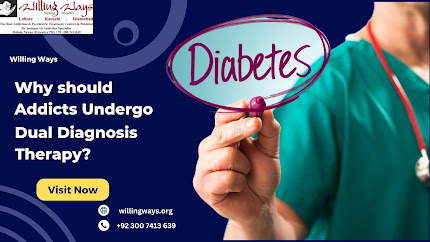Types of Depression in Teens
There are many types of depression at the best addiction treatment center in Islamabad, found in teenagers. And like teenagers, depression symptoms come in all shapes and sizes. Often we hear some teenagers say, I am so depressed, and we pass it by as the growing up part of life which teens go through, but in reality, they sometimes are depressed. Depression types are several types with similar but varying characteristics. The most frequently diagnosed types of depression among teens are major depression, dysthymia, and bipolar disorder.
Bipolar
depression in Teens (manic depression)
Alternating
episodes of mania or depression witness Bipolar Depression. These symptoms
include a depressed mood and loss of interest in daily life for about two
weeks. The air must also hurt the day to day living of the person experiencing
it. A teenager who has bipolar disorder has cycles of mood changes ranging from
a severe high (mania) to an extreme low (depression).
Major
depression in Teens (clinical depression)
Teenagers
who have major depression have similar symptoms to those of adults who have
major depression, including, but not limited to, sadness, irritability,
indecisiveness and hopelessness. Major depression can prevent a person from
acting and functioning normally. It can prevent teens from finding pleasure in
regular activities they once enjoyed. . Different side effects might
incorporate absence of fixation, dozing issues, feeling exhausted or slow
moving, and contemplations of death and self destruction.
Chronic
depression in Teens (dysthymia)
Dysthymia
disorder is like major depression and has the same characteristics and depression
signs
and symptoms. Still, unlike major depression, chronic depression is less severe and
typically doesn't disable a person's capability to do things. Chronic
depression is also characterized by a long period (two or more years) of
depressed mood. A kid or a youthful grown-up, or a high schooler who has
dysthymia might be discouraged for the greater part of his day, on a large
portion of the days and for quite a long time.




Comments
Post a Comment